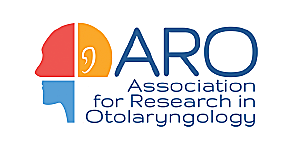The University of Minnesota seeks postdoctoral fellows interested in conducting innovative
multidisciplinary research in domains including behavioral neuroscience, clinical neuroscience,
clinical psychology, and/or behavioral genetics. Fellows are supported by a T32 training grant
funded by the National Institutes of Health’s National Institute on Drug Abuse. The purpose of
the training program is to provide research and training opportunities to encourage the
development of multidisciplinary skills within or across the above domains as they relate to drug
use, addiction, and related psychopathology. There is a particular emphasis on using large-scale
neuroimaging and genetic datasets to address questions pertinent to addiction.
Fellows have the opportunity to work with any of two dozen distinguished faculty mentors (listed
here). These mentors are highly multidisciplinary and collaborative. They lead both large-scale
collaborative efforts as well as specific tailored research studies within their own laboratories,
and use cutting-edge technologies to advance our understanding of the connections between
biology and behavior. Faculty mentors hail from eight different departments and centers at the
University of Minnesota, including:
1. Biostatistics
2. Center for Magnetic Resonance Research
3. Computer Science
4. Genetics, Cell Biology, and Development
5. Institute for Child Development
6. Pharmacology
7. Psychiatry
8. Psychology
9. Statistics
For more information please do reach out to any of our faculty mentors or to Professors Monica
Luciana (lucia003@umn.edu) or Scott Vrieze (vrieze@umn.edu), who are the directors of this T32 program.
Required Application Materials:
1) Cover letter
2) A current CV
3) Contact information for three professional references
Submit these materials by email to Drs. Luciana and Vrieze at the emails provided above.
Thank you!
Two positions are available. One postdoctoral position must begin before July 1, 2024 and the
other postdoctoral position must begin after July 1, 2024. The application deadline is May 1,
2024. Applications submitted after this date will be evaluated on a rolling basis.
Required Qualifications:
1. Must be a U.S. citizen or permanent resident.
2. Ph.D. in field related to the domains described above, which may include Biostatistics,
Radiology, Computer Science, Genetics, Statistics, Public Health, Epidemiology,
Neuroscience, Child Development, Pharmacology, and Psychology will be considered,
as will degrees in many other relevant fields.
3. Excellent written communication skills as demonstrated by scientific publication(s).
4. Excellent organizational and time management skills.
5. Proven ability to think creatively, solve problems, and work effectively with others.
6. Commitment to continued scientific and methodological research activity related to addiction, broadly writ.
Desired Qualifications:
While not required, we also seek individuals who have experience with research involving largescale data to answer scientific or methodological questions related to the goals of this training program as described above.
Duties/Responsibilities:
Fellows will conduct original research supervised by a faculty mentor with whom they will work
closely, communicating the results of that work at scientific meetings and through publication
(75%). Fellows will attend the weekly training program pro-seminar (5%), engage in training
activities (e.g., workshops) necessary to develop additional skills in their research field of
interest (10%), and apply for additional grant funding to bridge their eventual transition to
become independent scientists (10%).
Start Date:
The start date is negotiable. Initial appointment will be for 12 months but is renewable annually
up to two years contingent upon satisfactory performance and availability of funding.
Compensation:
Trainees receive stipends at standard NIH levels, as well as financial support for travel and
training. (At the time of this writing, the NIH levels are described here:
https://grants.nih.gov/grants/guide/notice-files/NOT-OD-22-132.html)
Diversity and Inclusion:
This training program, as well as the University of Minnesota as whole, recognizes and values
the importance of diversity and inclusion in enriching the employment experience of its
employees and in supporting the academic mission. The University is committed to attracting
and retaining postdoctoral fellows of diverse identities and backgrounds.
The University of Minnesota shall provide equal access to and opportunity in its programs,
facilities, and employment without regard to race, color, creed, religion, national origin, gender,
age, marital status, disability, public assistance status, veteran status, sexual orientation,
gender identity, or gender expression. To learn more about diversity at the U:http://diversity.umn.edu.
